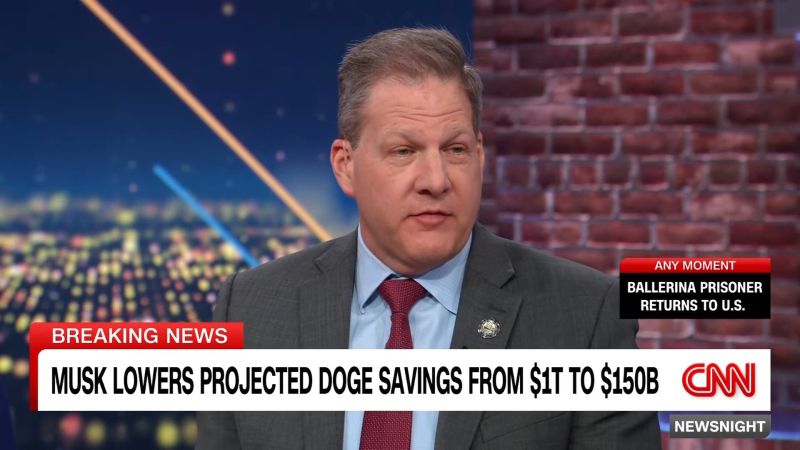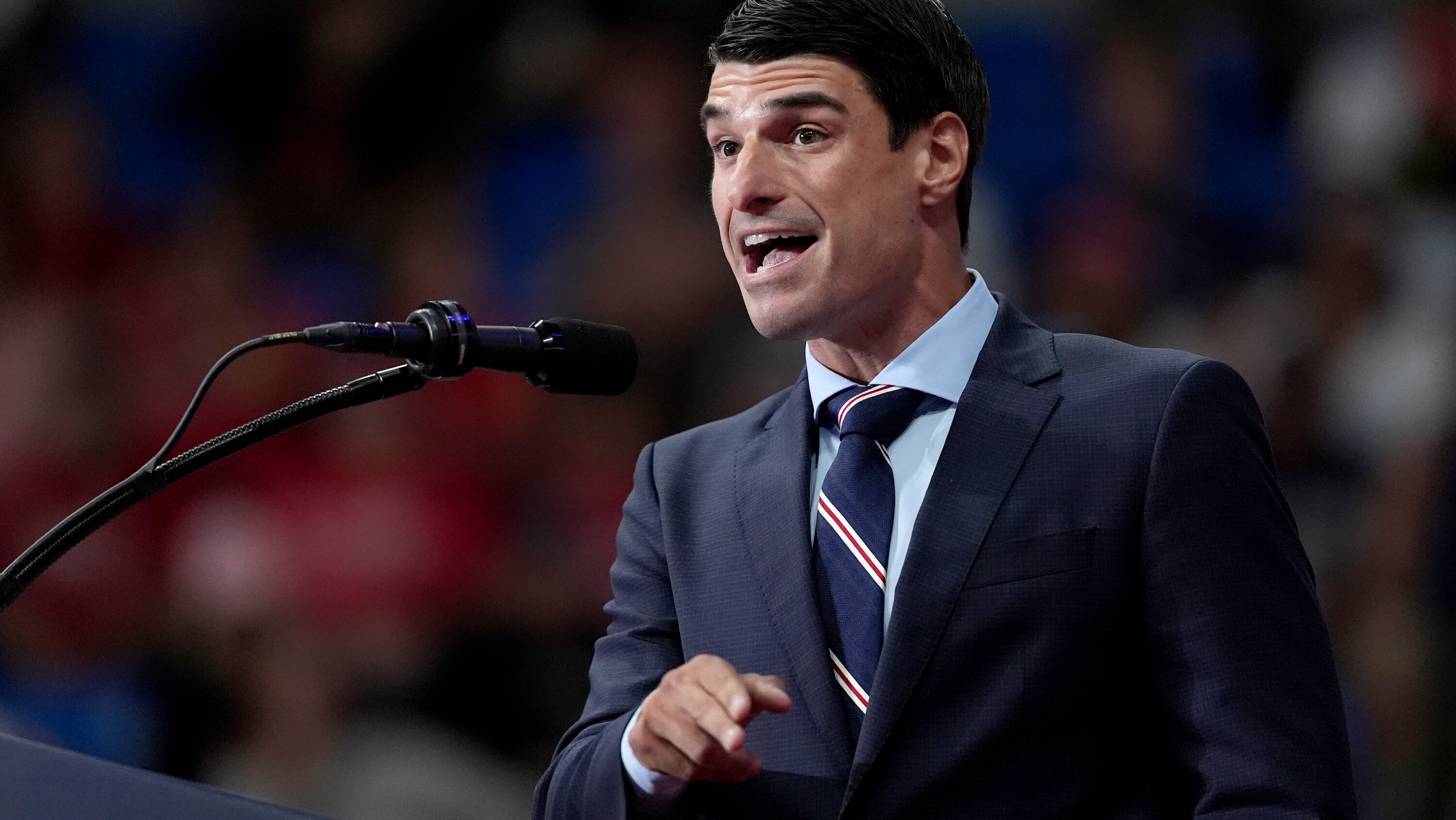Fear Factor: How Political Manipulation Grips the Nation's Psyche
Politics
2025-04-15 09:58:08Content

The Politics of Liquid Fear: Understanding Anxiety and Political Manipulation
In today's complex political landscape, fear has become a powerful tool for manipulation and control. Politicians and media outlets often exploit our deepest anxieties, transforming nebulous concerns into targeted fears that serve specific agendas.
Understanding Fear and Anxiety
Fear and anxiety are not mere emotions, but dynamic psychological states that can be channeled and directed. While fear relates to immediate, identifiable threats, anxiety represents a more generalized sense of unease about potential future uncertainties.
The Mechanics of Political Fear
Political actors strategically transform collective anxieties into concrete fears, often targeting marginalized groups or creating imaginary threats. This process allows them to:
- Mobilize public sentiment
- Justify restrictive policies
- Distract from systemic issues
Case Studies in Liquid Fear
COVID-19 Pandemic
The pandemic demonstrated how fear could be both constructive and destructive. While government messaging helped enforce public health measures, it simultaneously triggered harmful side effects like increased hate crimes against Asian communities.
Migration Narratives
European political discourse around migration exemplifies liquid fear, transforming complex socio-economic challenges into simplistic narratives of invasion and threat.
Countering the Politics of Fear
To combat manipulative fear-based politics, we must:
- Recognize fear's liquid nature
- Address underlying collective anxieties
- Develop constructive political visions
Alternative Emotional Strategies
Beyond fear, politicians can leverage emotions like shame to drive meaningful societal reflection and change. By challenging citizens to confront collective shortcomings, we can inspire genuine transformation.
Conclusion
Understanding fear as a fluid, manipulable force is crucial for developing more transparent, compassionate political discourse. By recognizing how anxieties are channeled and transformed, we can create more nuanced, empathetic approaches to addressing societal challenges.
Unmasking the Political Alchemy of Fear: How Emotions Reshape Our Social Landscape
In an era of unprecedented complexity, political narratives have transformed fear from a mere emotional response into a powerful instrument of social manipulation. The intricate dance between collective anxiety and strategic political messaging reveals a profound mechanism through which societies are subtly controlled and redirected.Navigating the Treacherous Waters of Emotional Manipulation
The Fluid Dynamics of Political Emotion
Political landscapes are not static terrains but dynamic ecosystems where emotions flow like liquid, constantly reshaping boundaries and perceptions. Emotions, particularly fear and anxiety, are not isolated experiences but interconnected currents that can be strategically channeled by those wielding political influence. Psychological research suggests that human emotional experiences are far more malleable than previously understood. Political actors have long recognized this malleability, transforming generalized societal anxieties into targeted, actionable fears that serve specific agendas.Decoding the Mechanisms of Fear Transmission
The transformation of abstract anxieties into concrete fears follows intricate psychological pathways. When collective uncertainties emerge—whether about economic stability, cultural shifts, or global challenges—political entrepreneurs identify and exploit these vulnerable emotional states. Consider how migration narratives are constructed: complex socioeconomic phenomena are reduced to simplistic, threatening imagery. "Waves" of migrants, "invasive" populations—these metaphors deliberately trigger primal fear responses, diverting attention from nuanced understanding toward reactionary impulses.The Architecture of Emotional Weaponization
Modern political communication has evolved into a sophisticated art of emotional engineering. Media narratives, political rhetoric, and strategic messaging work in concert to transform diffuse societal concerns into targeted emotional responses. The COVID-19 pandemic exemplifies this phenomenon perfectly. Initial health concerns metamorphosed into complex social dynamics, where fear not only addressed viral transmission but also manifested in xenophobic attitudes and heightened social tensions.Resistance and Reconstruction: Beyond Fear-Based Politics
Confronting the politics of fear requires a multifaceted approach. Progressive movements must develop narratives that acknowledge collective anxieties while offering constructive, hope-driven alternatives. Emerging political voices like Bernie Sanders and Alexandria Ocasio-Cortez demonstrate how anxieties can be channeled toward systemic critique and transformative vision. By addressing root economic inequalities and structural challenges, these leaders offer emotional pathways beyond fear-based rhetoric.The Transformative Power of Collective Shame
An alternative emotional strategy emerges through the lens of collective shame. Unlike fear's divisive nature, shame invites introspection and demands societal accountability. Marcus Rashford's campaign for children's school meals illustrates how shame can catalyze meaningful social change. By confronting uncomfortable truths about societal inequities, shame becomes a powerful tool for genuine transformation, challenging populations to align their actions with their professed values.Reimagining Political Emotional Intelligence
The future of political discourse lies in developing sophisticated emotional literacy. Understanding how fears are manufactured, transmitted, and manipulated empowers citizens to resist simplistic narratives and demand more nuanced, compassionate political engagement. Ultimately, the goal is not to eliminate fear but to transform it—from a weapon of division to a catalyst for collective understanding, empathy, and progressive social evolution.RELATED NEWS

Battle for the Ballot: Inside America's Most Electrifying Political Showdown of 2024

Inside Sununu's Decision: Why the GOP Governor Opted Out of Senate Race






